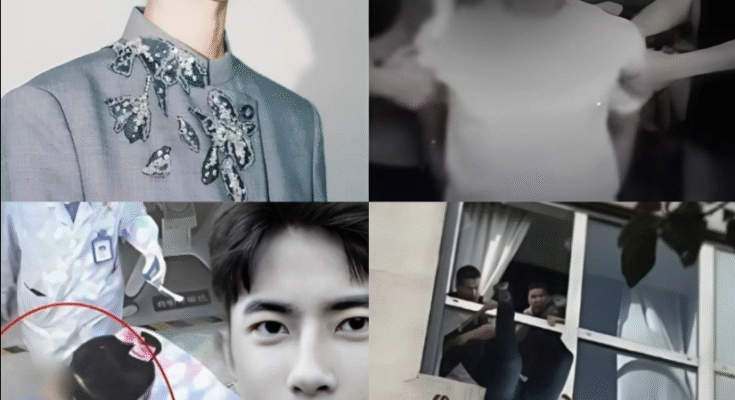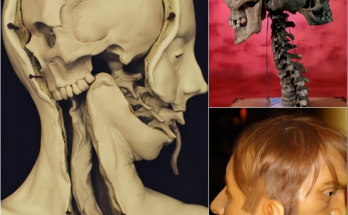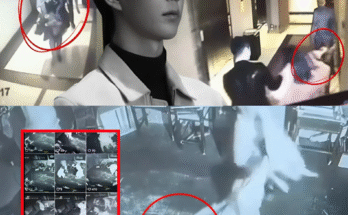When the beloved Chinese actor Yu Menglong was found dead in his Shanghai apartment, the entertainment world was left stunned. The man who had embodied sensitivity, integrity, and quiet strength in his performances was gone at just thirty-seven — his final moments shrouded in confusion. Yet, before fans could even begin to mourn, another shock followed: Li Jian, the lawyer who once fought to protect Yu from a powerful entertainment conglomerate, had vanished.
Two tragedies, intertwined by fate — or by something darker.
The Golden Boy of a Fragile Industry
To understand the magnitude of what happened, one must first understand who Yu Menglong was. Known for his soulful eyes and graceful calm, Yu had risen from humble beginnings in Hunan to become one of China’s most respected actors and singers. He was not the typical celebrity molded by studios; he was thoughtful, almost withdrawn, often seen as a reluctant star.
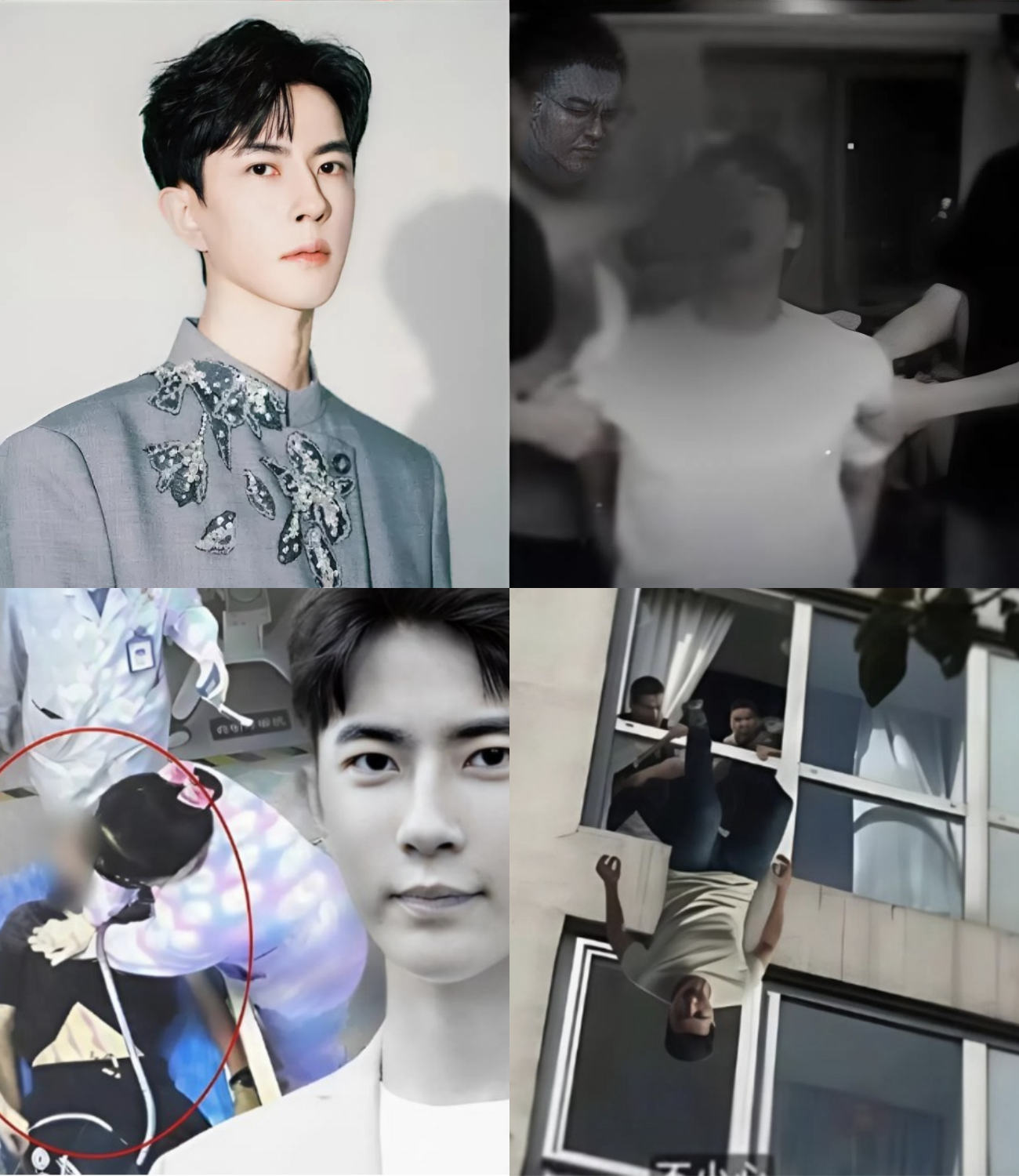
Colleagues described him as “too gentle for the industry” — a world defined by ruthless contracts, exhausting schedules, and relentless image control. Yu’s stardom came at a cost. Despite his popularity, those close to him say he often struggled privately with the hypocrisy of the entertainment machine that both made and consumed him.
“Yu didn’t want fame; he wanted freedom,” said one former co-star. “He wanted to choose his art, his image, his life. That’s what started the war.”
The Legal Battle That No One Was Supposed to See
That “war” was a two-year legal conflict between Yu and his management agency, Golden Harbor Media, one of the most influential entertainment groups in mainland China. The case never reached the public courts; it was settled in private arbitration under heavy secrecy.
But leaked fragments of the dispute suggest that Yu accused the agency of contractual coercion, revenue manipulation, and emotional abuse, claiming he had been pressured into promotional campaigns he found ethically questionable. Golden Harbor denied all wrongdoing, branding Yu as “difficult” and “unstable.”
That’s when Li Jian entered the picture. A respected attorney known for defending whistleblowers and journalists, Li was fearless — a rare figure in a system that often bends under corporate pressure. Those who knew him say he saw Yu’s case not just as a contractual matter but as a fight for dignity in an industry built on exploitation.
For months, Li pushed back against powerful figures. Sources claim he received anonymous threats, was surveilled, and faced pressure to withdraw the case. He didn’t. And eventually, Yu won a quiet settlement — a rare victory, though at great personal cost.

Afterward, Yu disappeared from the spotlight, retreating from public life. “He was tired,” a friend said. “But he was also planning something big. Something that scared people.”
The Death That Didn’t Add Up
When news broke that Yu had been found dead, official reports described it as an “accidental overdose.” But details quickly unraveled.
Emergency services were called at 2:47 a.m. Neighbors reported heated voices coming from his apartment just before midnight. Surveillance footage from the hallway reportedly went missing — a “technical malfunction,” authorities said.
Family members later told reporters that Yu had seemed “calm and focused” in the days leading up to his death. He was working on new music and had been drafting a statement — one he planned to release about “the truth behind the industry.” That document has never been found.
Despite inconsistencies, the investigation was closed within 72 hours. Fans online began to question everything. Why the rush? Why the silence?
Then came the twist no one saw coming.
The Vanishing of Li Jian
Three days after Yu’s funeral, Li Jian disappeared.
His assistant found his office locked, his phone switched off. His car was discovered near the Huangpu River, keys still in the ignition, with no sign of struggle. His last known message, sent to a colleague at 11:43 p.m., read simply:
“I think they’re watching again. I’ll send the file tomorrow.”
The file never came.
Authorities classified Li’s disappearance as a “personal matter.” But his family insists he had no reason to vanish voluntarily. He had just signed a new case, had dinner plans the next day, and had booked tickets for a trip abroad.
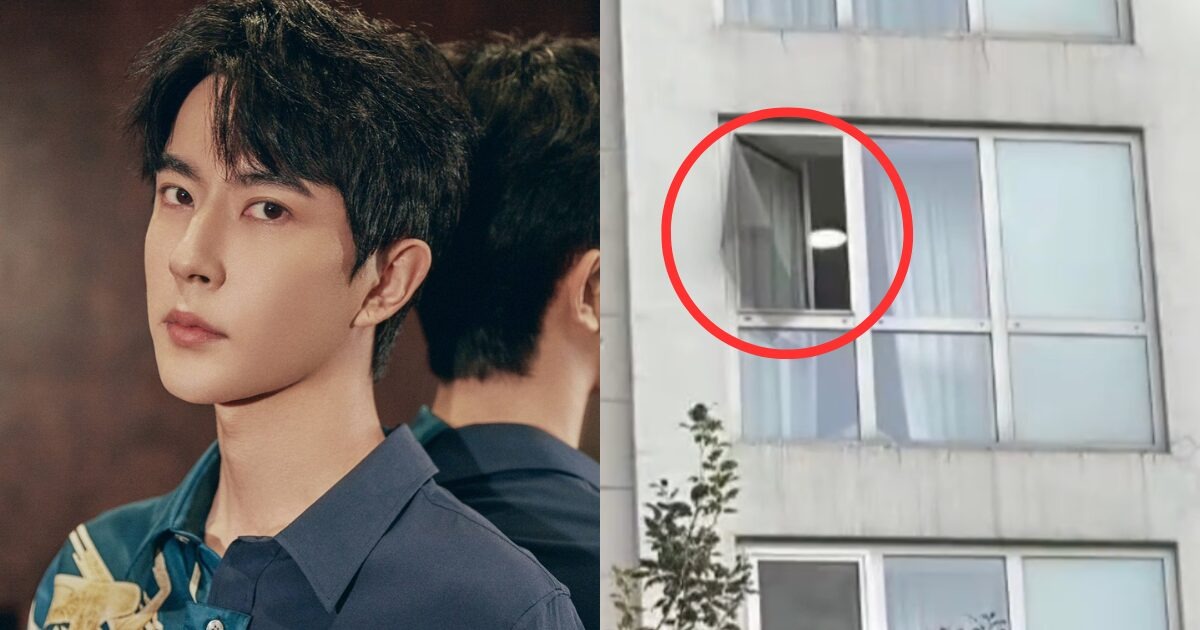
Those who knew him best believe he was silenced — not for what he had done, but for what he was about to reveal.
The Thread That Connects Them
It is now widely believed that Yu and Li remained in contact long after the legal settlement. Several sources claim that Yu had begun compiling documents, recordings, and financial ledgers related to his case — evidence of corporate coercion, media manipulation, and possible political interference.
According to leaked text messages allegedly sent from Yu’s phone, he told Li:
“If anything happens to me, you know where to look.”
But where to look remains the question.
When Li vanished, his computer and hard drives were gone. Police found no fingerprints in his office — not even his own. It was as if someone had erased him from his own space.
The Silence of the Powerful
Golden Harbor Media has issued only one statement since the two incidents:
“We are deeply saddened by the passing of Mr. Yu Menglong. We have no comment on unrelated matters.”
Their tone — detached, rehearsed, sterile — only deepened public suspicion. Meanwhile, social media posts discussing the case were systematically deleted within hours. Keywords like “Yu Menglong,” “Li Jian,” and “missing lawyer” were temporarily blocked on major Chinese platforms.
Independent journalists attempting to investigate claim they were harassed, detained, or had credentials revoked. One reporter for Global Journal described receiving an anonymous call warning him to “drop the story for his own safety.”
By now, the message is clear: someone does not want this story told.
The Fan Movement: Truth as Resistance
But in the digital age, silence rarely holds. Yu’s fans — many of them young, tech-savvy, and relentless — have turned grief into activism. Online, they have formed digital coalitions like #JusticeForYuMenglong and #FindLiJian, collecting every scrap of information that leaks through censorship barriers.
They’ve cross-referenced timestamps, reconstructed deleted posts, and archived screenshots before takedowns. What they’ve uncovered paints a disturbing pattern: corporate censorship, legal intimidation, and coordinated disinformation campaigns aimed at portraying Yu as “unstable.”
“Yu Menglong was not broken,” one fan wrote in a viral post. “He was brave enough to speak — and they punished him for it.”
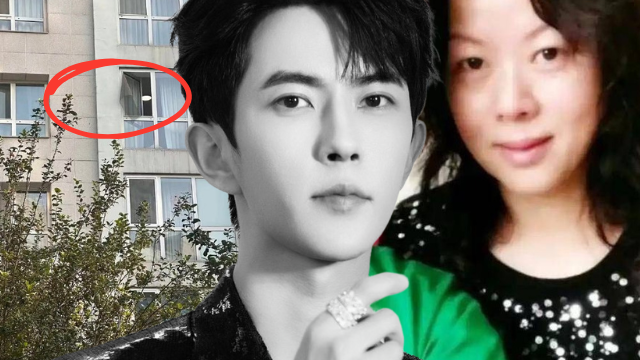
Beneath the Surface — A Larger Pattern
To dismiss these tragedies as coincidence is to ignore the broader landscape of modern entertainment power in East Asia. Behind the glitter of celebrity lies an industry often driven by opaque contracts, financial secrecy, and psychological manipulation.
Actors are bound to multi-year agreements that control not just their work but their image, their relationships, even their social media behavior. Those who resist face blacklisting — or worse.
Yu’s case, then, was never just about one man. It was about a system built on silence. Li Jian, too, was not just a missing lawyer — he was a rare voice of accountability in a field where truth itself can be dangerous.
What We’re Left With
Months later, Yu’s death and Li Jian’s disappearance remain unsolved. Official investigations have stalled. The public is left with fragments: a few text messages, missing files, and a collective unease that refuses to fade.
The question now is not whether foul play occurred, but whether truth will ever be allowed to surface.
Perhaps the most haunting thought is that both men — one an artist, the other an advocate — may have realized the same truth in their final days: that honesty, in a world built on control, is the most dangerous act of all.
The Legacy They Leave Behind
In the end, Yu Menglong’s light endures not in the sanitized obituaries printed by state media, but in the collective memory of those who refuse to forget. His fans have turned grief into rebellion, his story into a movement.

And somewhere in the shadows, the silence surrounding Li Jian continues to crack. Whispers persist that a copy of the missing file still exists — encrypted, circulating quietly among trusted sources. If true, it could expose not only the circumstances of Yu’s death but the systemic corruption that took them both.
Until then, the world waits.
Waits for truth. Waits for justice. Waits for a voice brave enough to break through the noise.
Because the greatest tragedy here is not only that Yu Menglong is gone —
but that he may have died trying to tell a truth the world was never meant to hear.
